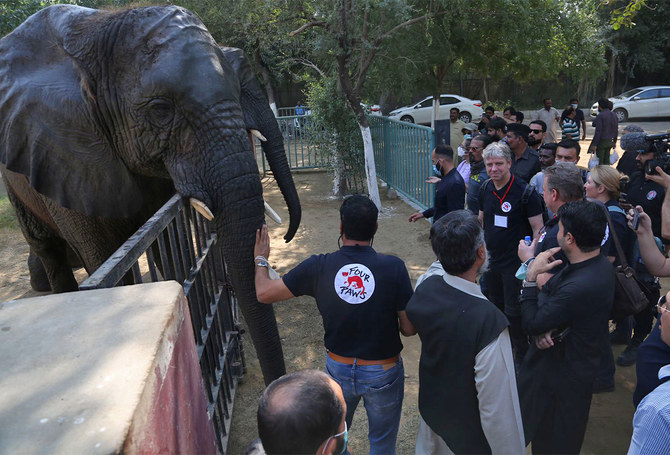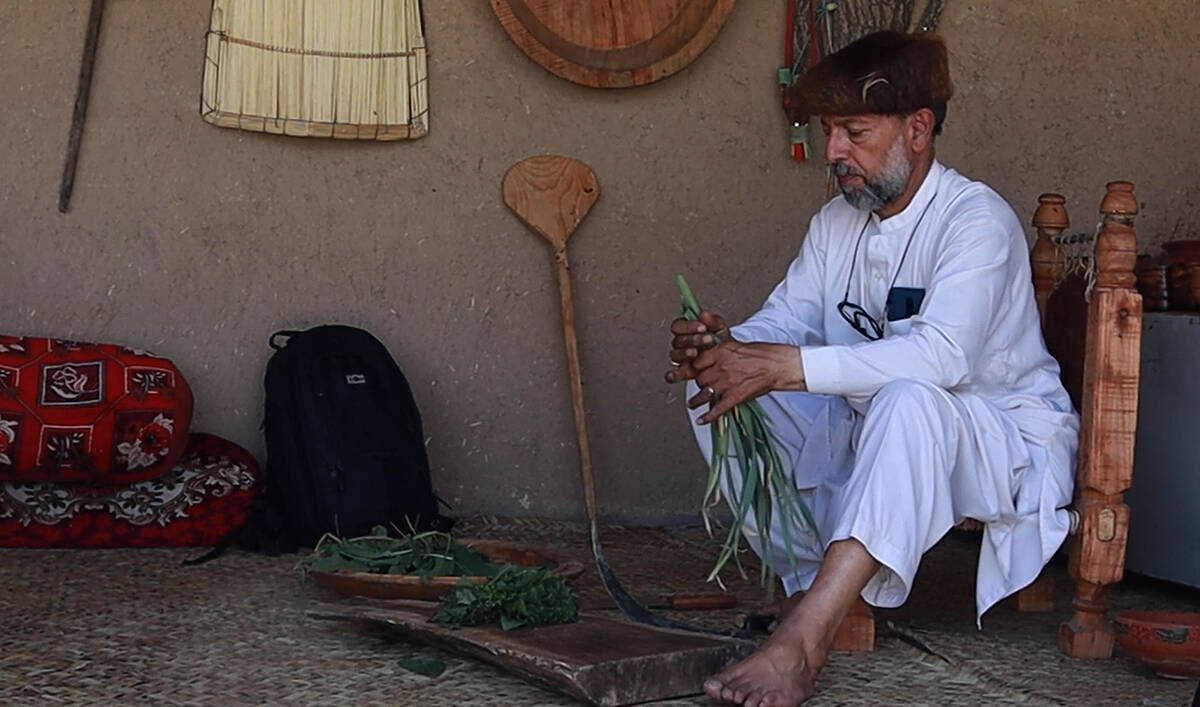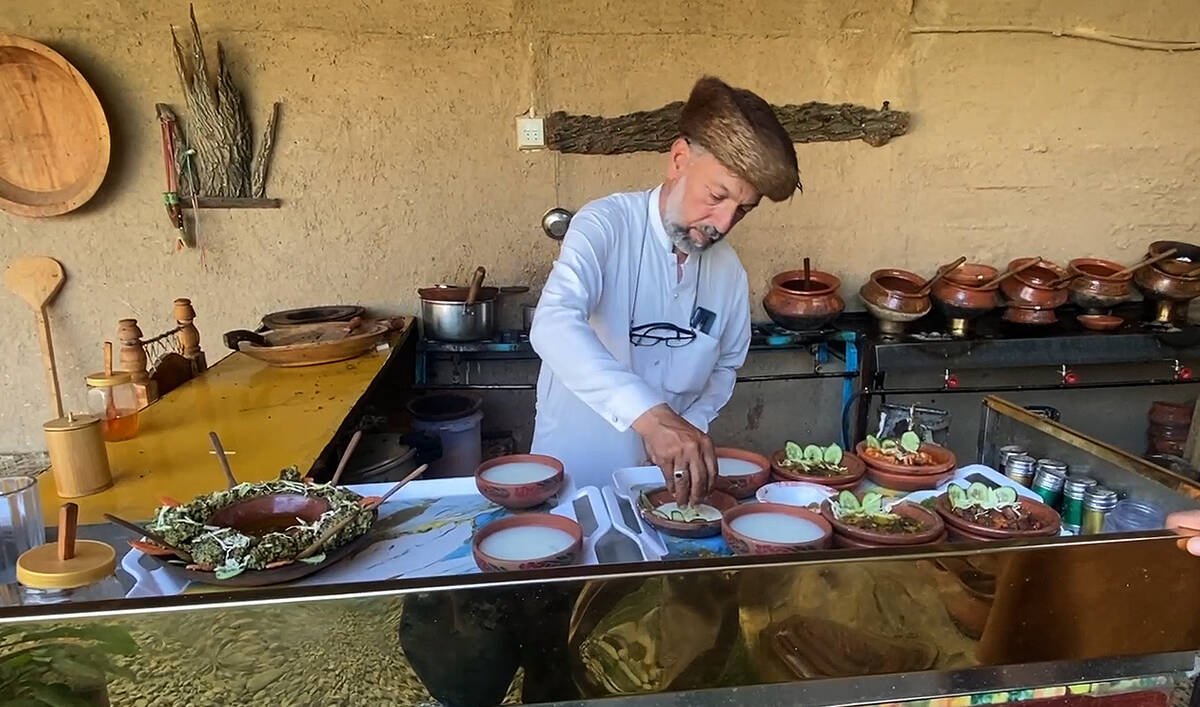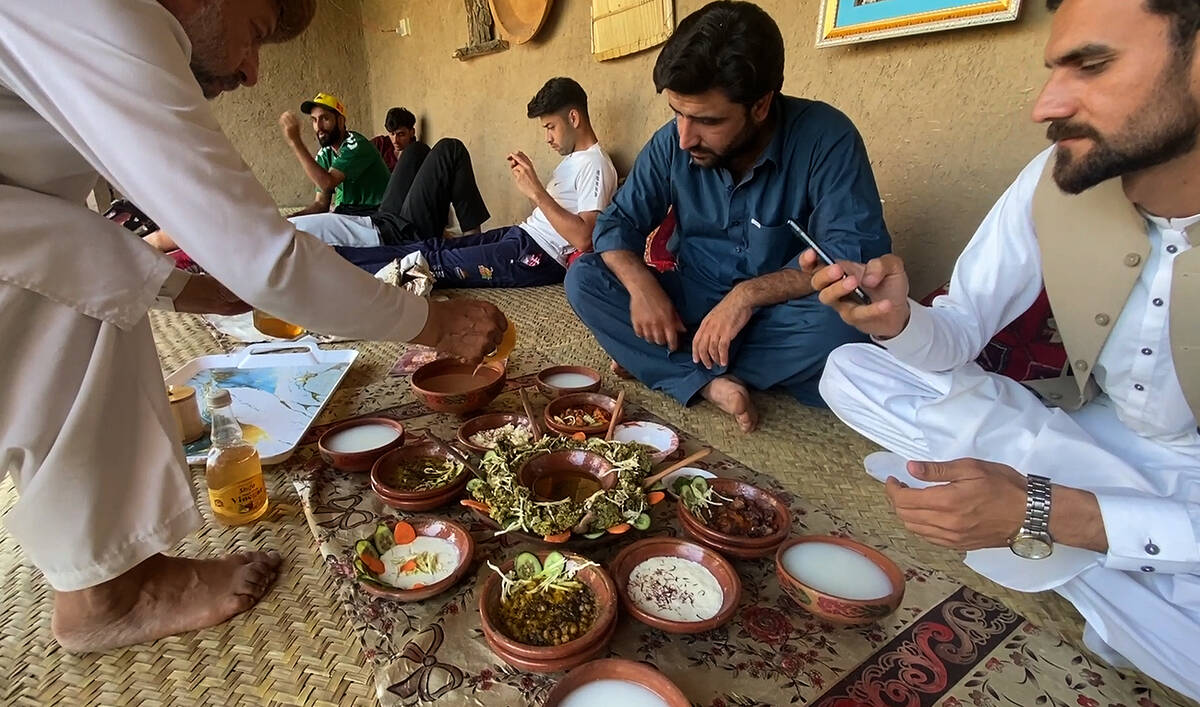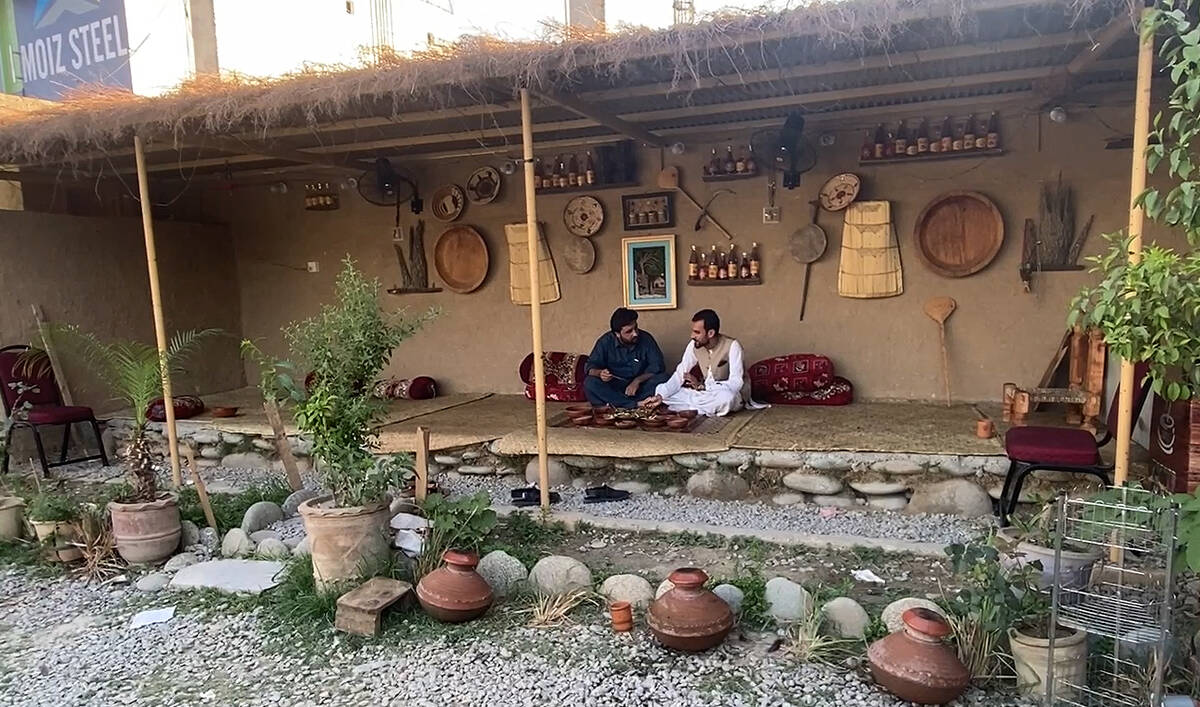KARACHI: Almost a year after Kaavan was rescued to a sanctuary in Combodia, a team that had examined the “world’s loneliest elephant” arrived in the southern Pakistani city of Karachi on Sunday to assess health of four other elephants, which animal rights activists say were not being kept in proper conditions.
Kaavan was the last Asian elephant in captivity in Pakistan. The 36-year-old bull elephant was kept at Islamabad’s dilapidated zoo. Animal rights groups launched a campaign to save him from the substandard conditions there, which was boosted by spirited social media support from US actress and musician Cher. The elephant was rescued to a sanctuary in Combodia on November 30, 2020.
The team comprising international veterinarians and wildlife experts from FOUR PAWS, a Vienna-based global animal welfare organization, began assessing health of African elephants, Malika and Sonu, at Karachi’s Safari Park. The experts will examine health of Noor Jehan and Madhubala, two other African elephants kept at Karachi Zoo, on Monday and submit their assessment report to a court on Tuesday. According to officials, these are the last four African elephants left in Pakistan.
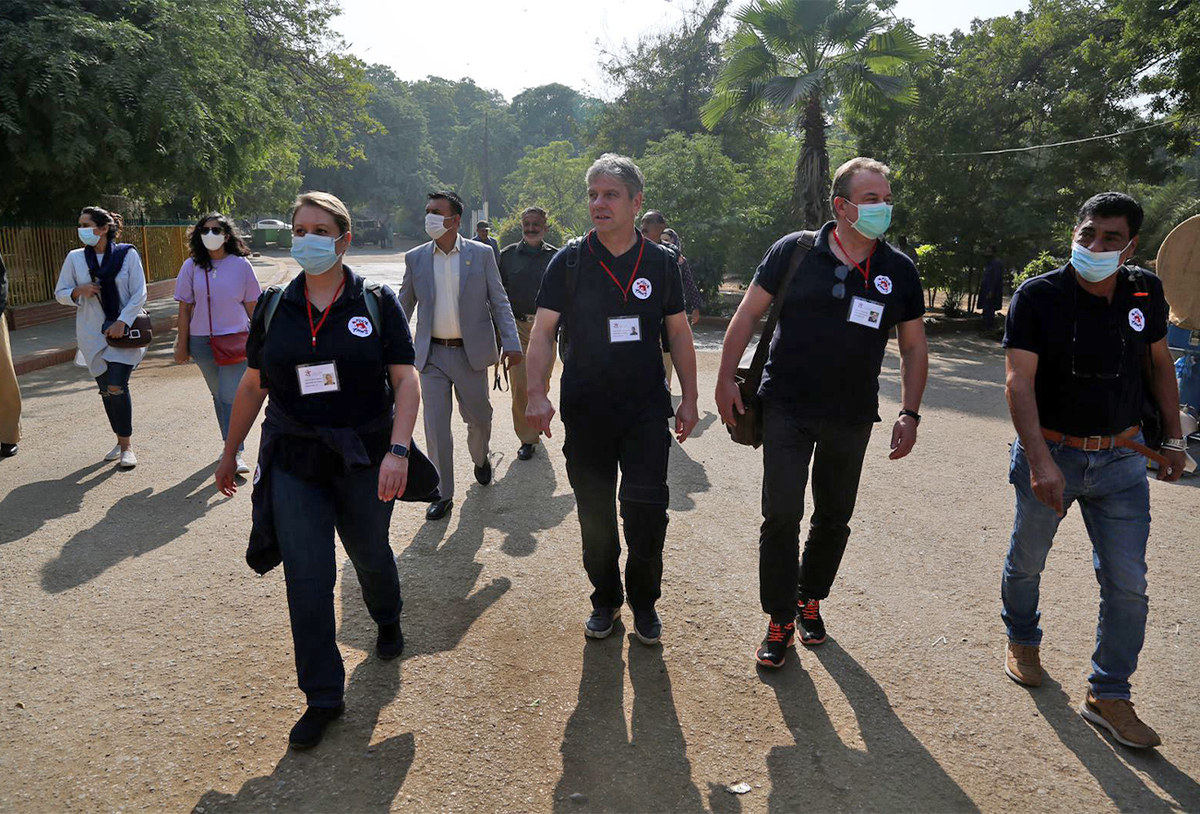
A team comprising international veterinarians and wildlife experts from FOUR PAWS, a Vienna-based global animal welfare organization, visit Safari Park in Karachi, Pakistan on November 28, 2021. (AN Photo/S.A. Babar)
In September, the Sindh High Court (SHC), while hearing a petition by animal rights activists, granted permission to Dr. Frank Goritz, the head veterinarian at Leibniz Institute for Zoo and Wildlife Research (IZW), to visit Pakistan to inspect heath of these elephants. The petitioners had moved the court after a video showed cracks in Malika’s foot.
The Karachi Metropolitan Corporation (KMC) had opposed the move and pleaded with the court that the inspection be carried out by vets from Lahore Zoo and the Sindh Agriculture University. But the court rejected the KMC’s plea.
On Sunday, Dr. Amir Khalil led a team of veterinarians and wildlife experts, including Dr. Frank Goritz and Prof Thomas Hildebrandt from IZW and Dr. Marina Ivanova from FOUR PAWS, which concluded its examination of two elephants. The experts were amazed that Sonu, whom the authorities said was a male and brought especially for breeding purpose, turned out to be a female.
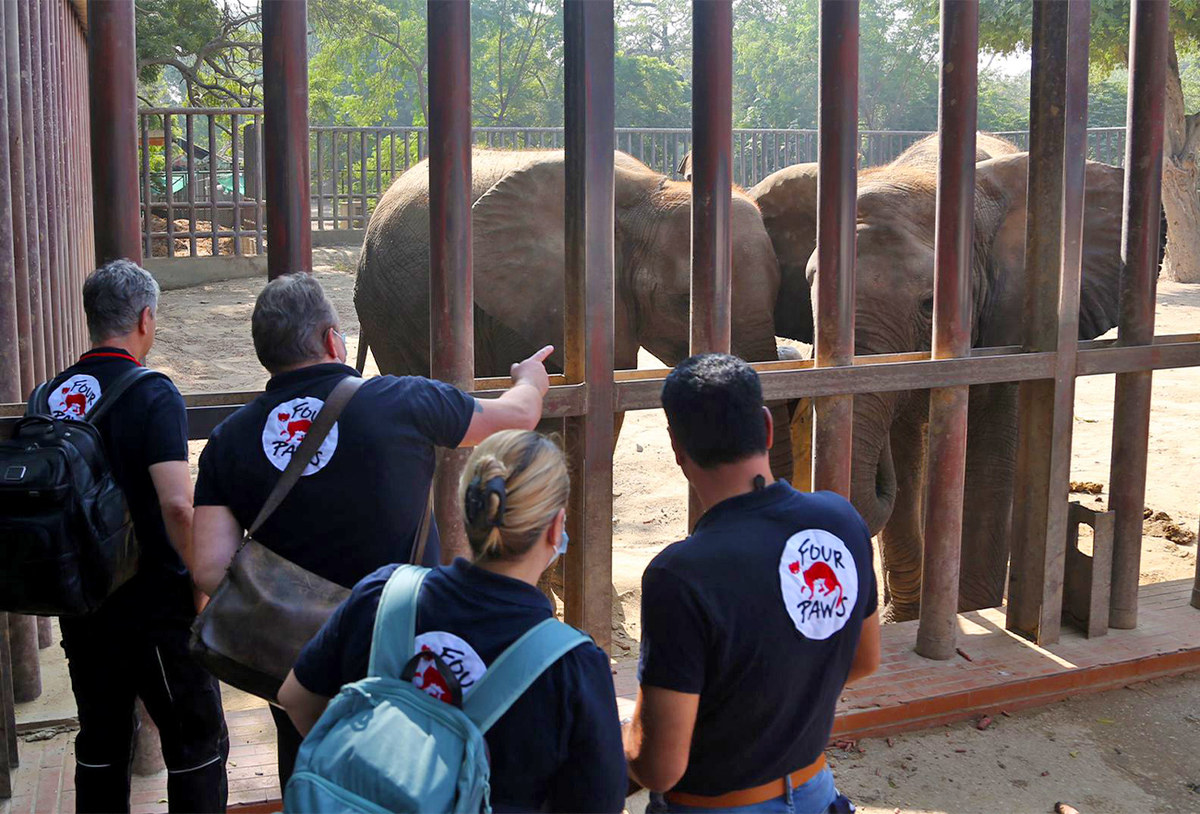
A team comprising international veterinarians and wildlife experts from FOUR PAWS, a Vienna-based global animal welfare organization, assesses health condition of elephants at Safari Park in Karachi, Pakistan on November 28, 2021. (AN Photo/S.A. Babar)
Dr. Khalil told Arab News the elephants seemed “physically fit” and the space for keeping them was “also good,” but a complete assessment could only be shared after full examination, tests, body measurement and ultrasound of the animals.
“Tomorrow, we will examine two more elephants at Karachi Zoo and then make a report for submission in the court on Tuesday,” Dr. Khalil said, adding the experts will make recommendations for local officials for the upkeep of animals.
Dr. Khalil believed though the space was good, there was still room for improvement, saying local officials extended all required support to them.
“Here we are neutral, we are not for right or left, but we give just facts, what we see and observe. This is our version and to give some recommendations what can improve conditions for the animals,” he said.
“I think there is some enrichment we can recommend to make the space more interesting for the elephants.”
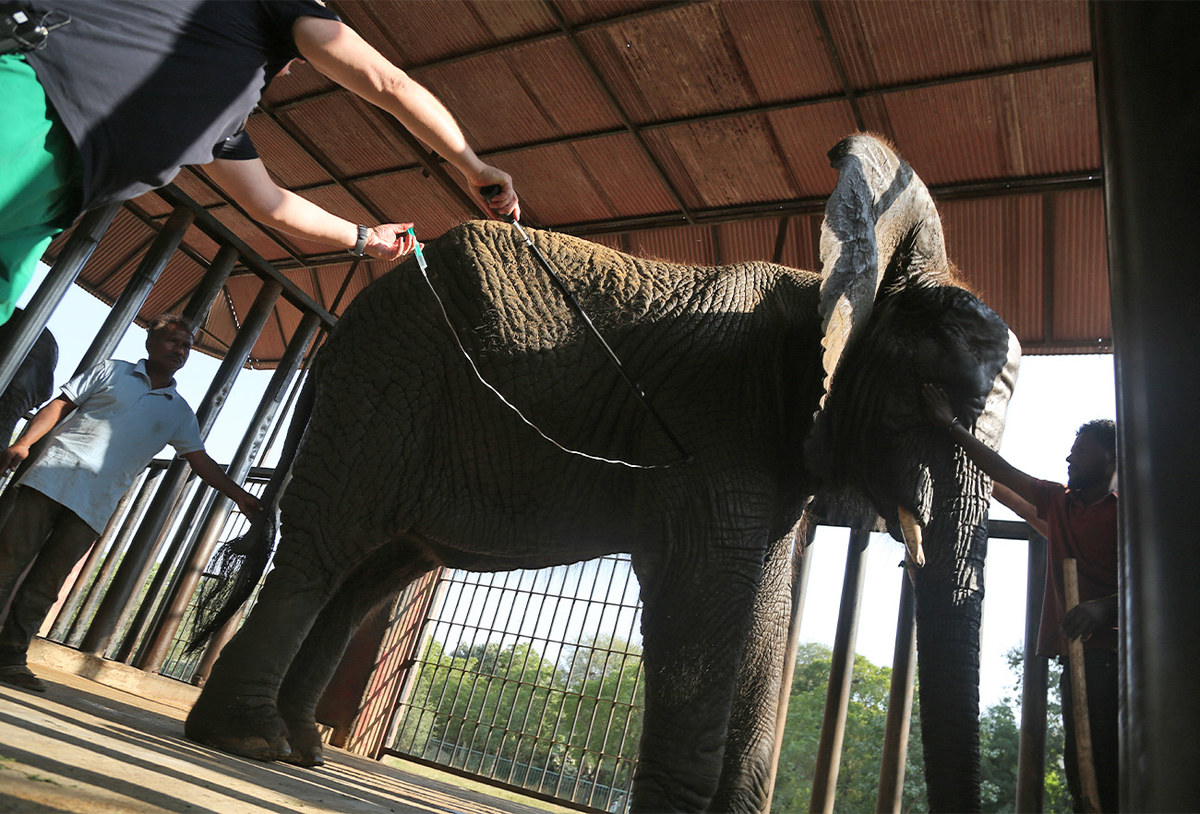
A team comprising international veterinarians and wildlife experts from FOUR PAWS, a Vienna-based global animal welfare organization, assesses health condition of elephants at Safari Park in Karachi, Pakistan on November 28, 2021. (AN Photo/S.A. Babar)
Following the assessment, the experts would propose their recommendations to representatives of the high court, who would take the results into further consideration.
Irfan Salam, director coordination to the Karachi administrator, told Arab News the elephants were kept in “really good conditions” and provided “Tanzania-like habitats,” however, the KMC would welcome any recommendations for further improvement in their living conditions.
“We welcome the international experts and don’t challenge their judgment as they are highly qualified experts. We will be happy to implement their recommendations and would like them to visit after six months so see the status of implementation,” Salam said.
“The elephants are kept in really good conditions and great space, which we will further enhance as we plan to utilize around 100 acres of vacant land to improve Safari Park.”
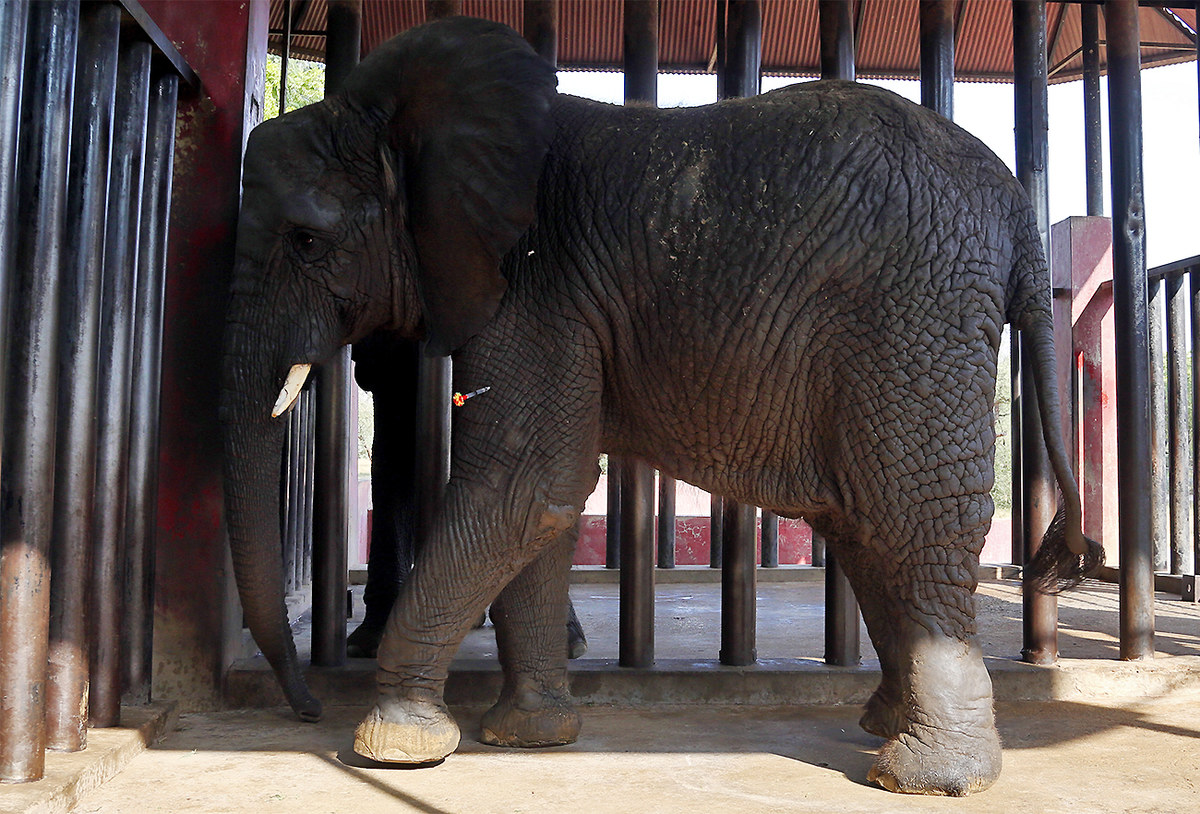
The pictures shows an elephant at Safari Park in Karachi, Pakistan on November 28, 2021. (AN Photo/S.A. Babar)
Dr. Khalil earlier thanked the SHC for trusting their expertise and said they were happy to support the authorities in making sure these elephants received “species-appropriate care.”
“We will perform medical examinations on all four elephants, check their feet and assess their keeping conditions. We are also bringing medicine and equipment and are ready to treat the elephants in case any urgent medical action is needed. We hope to support the national authorities in finding a species-appropriate solution for these elephants,” he had said in a statement prior to the visit.
“FOUR PAWS is ready to also provide assistance and help to other animals at the zoos, if needed and permitted by the local authorities.”


